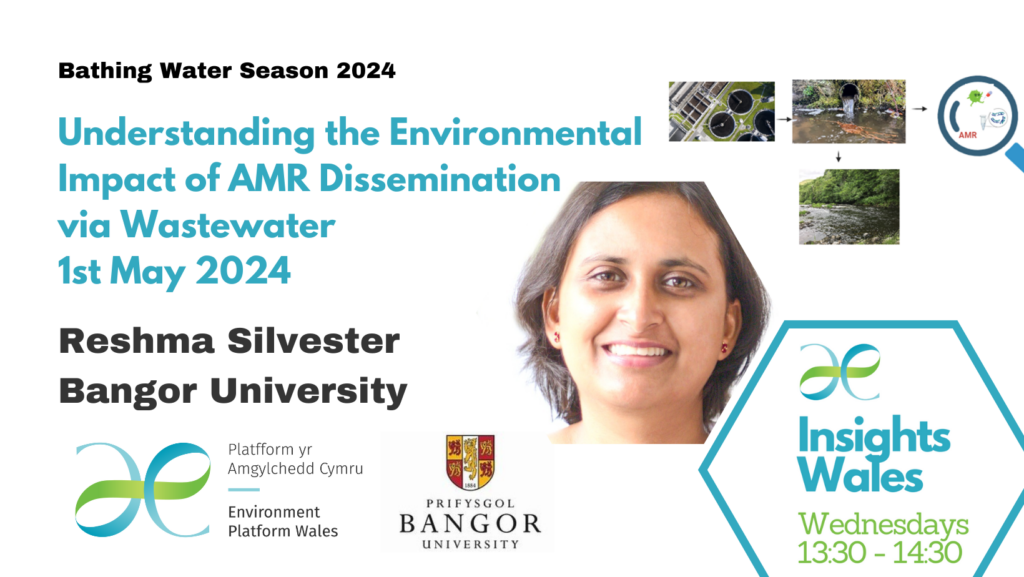Reshma Silvester | Bangor University | 01/05/24 13:30 – 14:30 | Bathing Water Season 2024

Waste water treatment plants (WWTPs) have been recognized as potential hotspots for the emergence and proliferation of antimicrobial resistance (AMR). Wastewater from households, hospitals, and industries enters WWTPs, bringing together a diverse mix of antibiotic resistant bacteria (ARBs) and antibiotic resistant genes (ARGs). WWTPs may not effectively remove all antibiotic resistant organisms or genes and consequently, treated effluents or untreated effluents (through combined sewer overflows) harbouring ARB/ARGs, may be released back into natural environment. These entities in the environment can find their way back to humans/animals, posing a one health threat. The talk will focus on the contribution of WWTPs to the emergence and spread of AMR within the environmental compartments.
About the Speaker

Reshma is a microbiologist by profession, with more than 10 years of research experience in the field of antimicrobial resistance (AMR). She currently works as a Post-Doctoral Research Officer at Bangor University, in the Pathogen Surveillance in Agriculture, Food and Environment (PATH-SAFE) project. Her PhD focused on studying AMR in marine and aquaculture environments. In the past, she has actively contributed to several AMR related research projects such as Global mapping of AMR in food-producing animals from LMICS, AMR and pathogen surveillance in environmental waters, aquaculture farms, and seafood etc.



